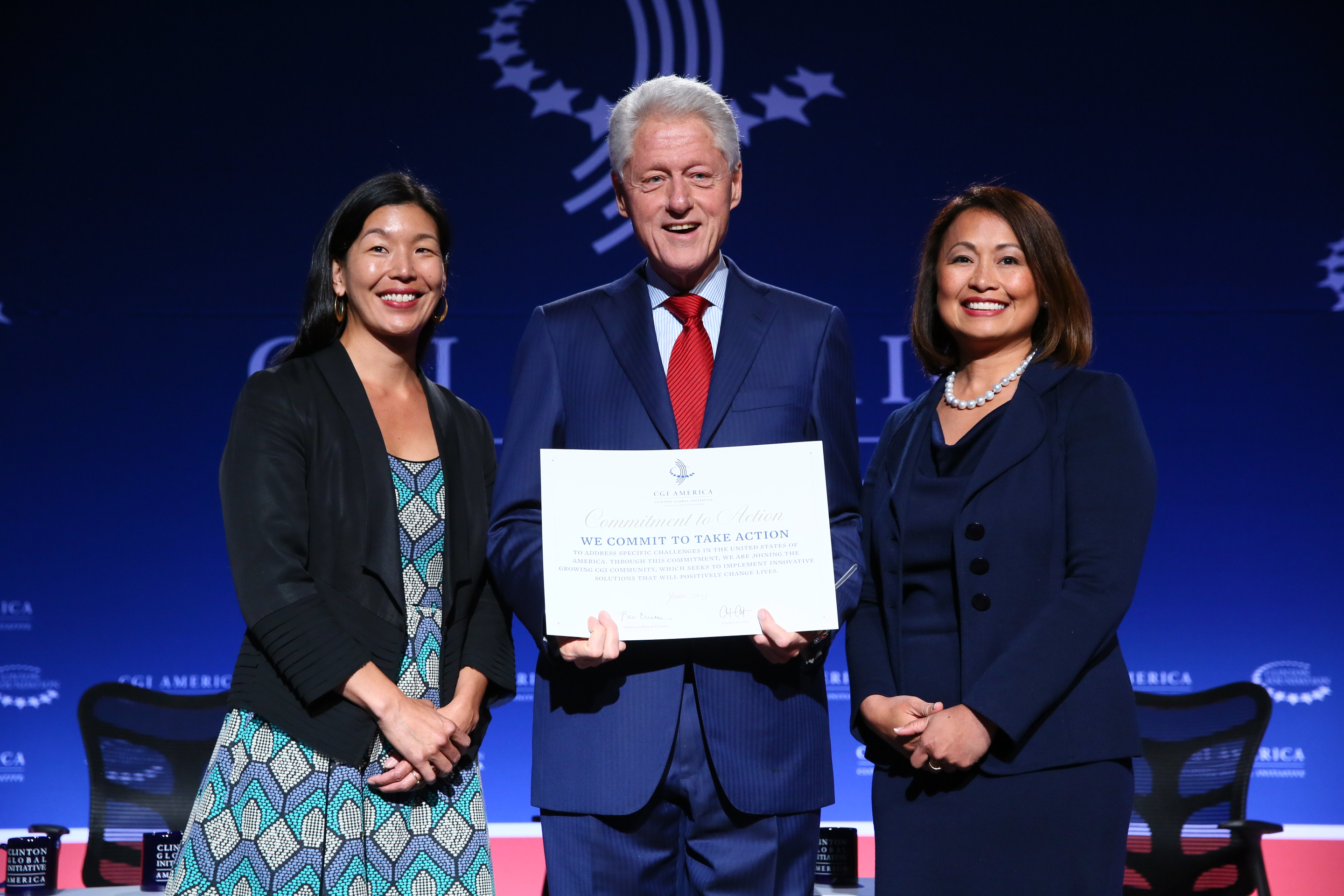EO Partner Presents: A New Approach to Social Change
June 30, 2016

By Fernande Raine and Valeria Budinich, co-leaders of Ashoka’s Changemaker Economy initiative
Is contributing to social impact good for business? Furthermore, can a passion for fixing society’s toughest problems co-exist with a culture that commits to the bottom line first? Do we need to change our organizations to make this work?
To all three questions, Ai-jen Poo and Sheila Lirio Marcelo would answer “yes.” These entrepreneurs think big and differently as they navigate their large organizations successfully. Ai-jen, a social entrepreneur and co-founder of the National Domestic Workers’ Alliance, has opened up valuable services to millions of clients through legislative changes. Meanwhile, Sheila, CEO, chairwoman and co-founder of Care.com, is reinventing the economy of care, serving millions of families and caregivers in 16 countries.
Both entrepreneurs are obsessed with the same idea: to transform the domestic labor economy into one that provides dignity, fosters a society of empathy and enables everyone to thrive to their fullest potential. But while one of them operates a citizen sector organization, the other runs a publicly traded corporation. Both entrepreneurs are serving the same clients and working together as vanguards of a new form of social-impact partnership: the hybrid value system.
The term “social impact” has been buzzing around the entrepreneurial community as a core value for a while, with most of the conversation focused on sustainability, corporate social responsibility and individuals further investing in charity and philanthropy. This new game of building hybrid value systems is different; it’s a team of entrepreneurs working with other stakeholders to change the rules of how industries work, so that profits and problem-solving become two sides of the same coin. A key player in this kind of team is the social entrepreneur. By that we don’t mean someone who can build a business that makes money and has social impact. We mean someone who is single-mindedly focused on solving a social problem, and is a true entrepreneur in how they design their solution and scale.
Ai-jen is one of the more than 3,000 social entrepreneurs in 85 countries that Ashoka has selected in the past 30 years. They are not just coming up with good innovations, they are pioneering a new way of organizing for systems change and the good of all. As an example, Ai-jen and Sheila’s partnership is unlocking massive business and social value. Their teams are operating across silos and sectors to ignite positive change. Enabling new actors to participate in positive, large-scale social change is key to their strategy. They are contributing to building an “Everyone a Changemaker” world in which everyone has a voice and the capacity to contribute in a meaningful way.
Entrepreneurs of all kinds, social and business, have a critical role to play in ensuring that today’s opportunities turn into tomorrow’s solutions. We are challenged to help chart the course to a future in which more people can thrive and experience full lives. Now is the time for a new social compact between business and society. Instead of the purpose of business being narrowly defined as shareholder value creation that (at best) does no harm, it is time for a new framing for how businesses should engage with society. We need a new leadership and management paradigm that will enable the creation of hybrid value systems like the one Ai-jen and Sheila are pioneering in the “care economy,” one which will help corporate players unlock their full potential as a force for good. The more businesses transition from a CSR model to a high-impact role as a change-maker, the faster solutions will start outpacing problems.
Our new strategic partnership with EO is a great step toward helping many more such alliances form. We at Ashoka are dedicated to supporting businesses in making this transition.; the societal benefit of corporations engaging as problem-solvers and partners in systems change will be immeasurable. We are therefore setting out to leverage our network of social entrepreneurs and the insights gleaned from their work to advance a “changemaker economy.” In turn, EO members have the opportunity to be a part of teams for systems change, bringing the power of their experience to solving problems while finding new value. The mutual benefit is not hard to see— in this alliance, everyone wins.